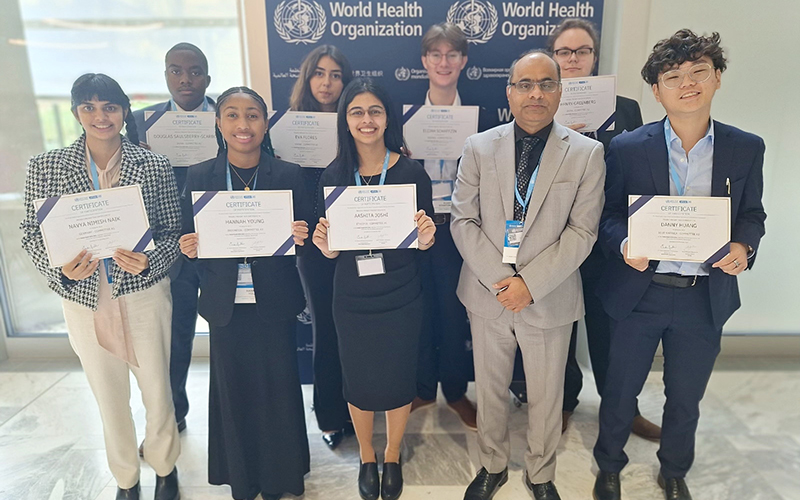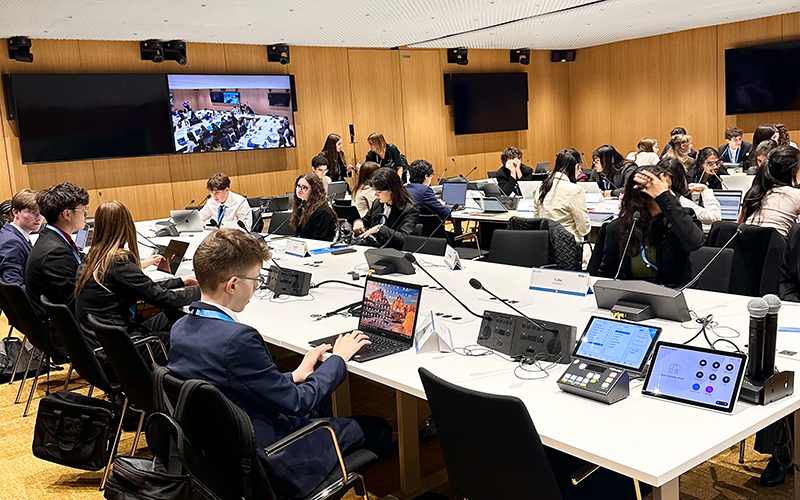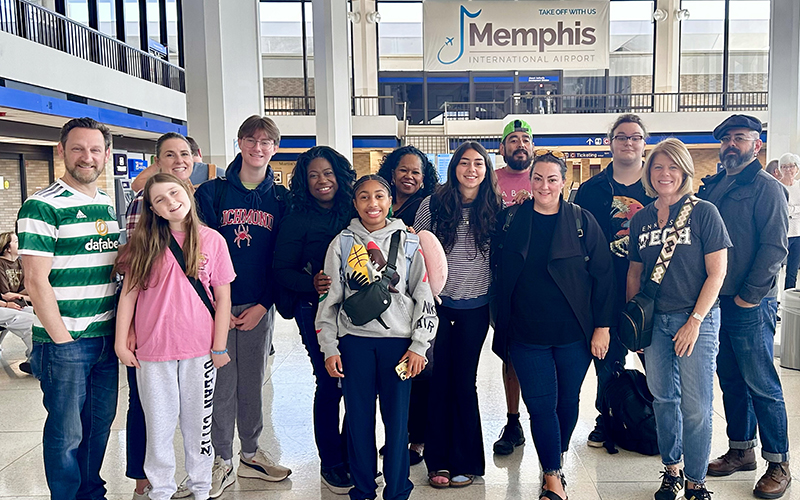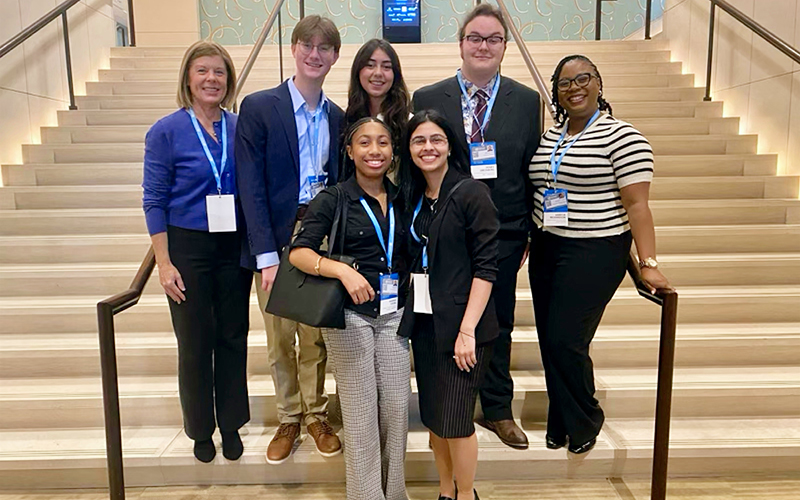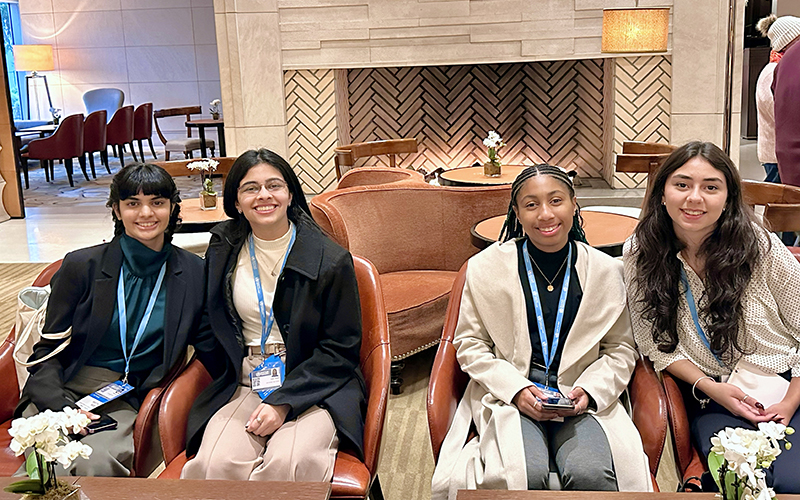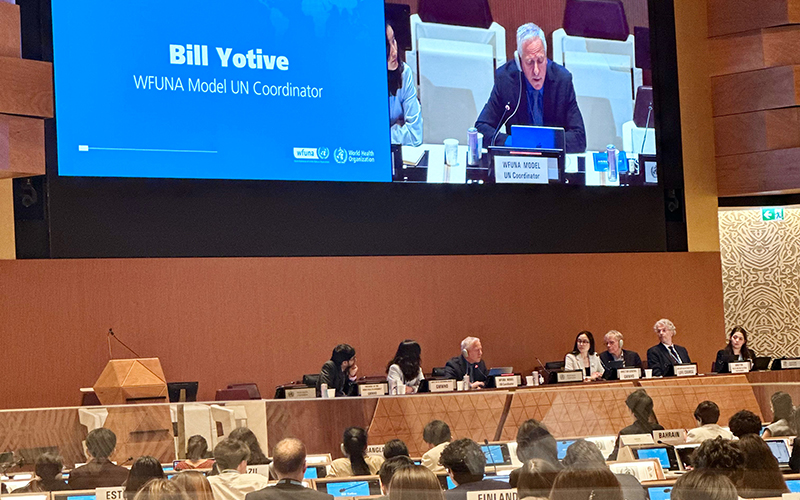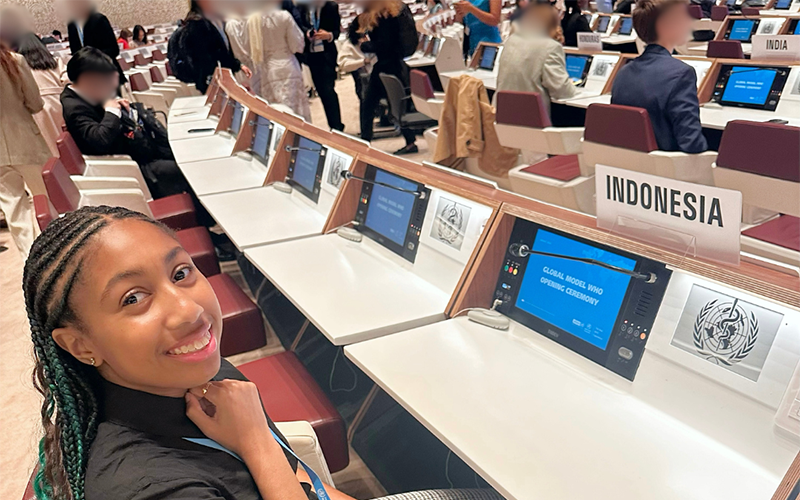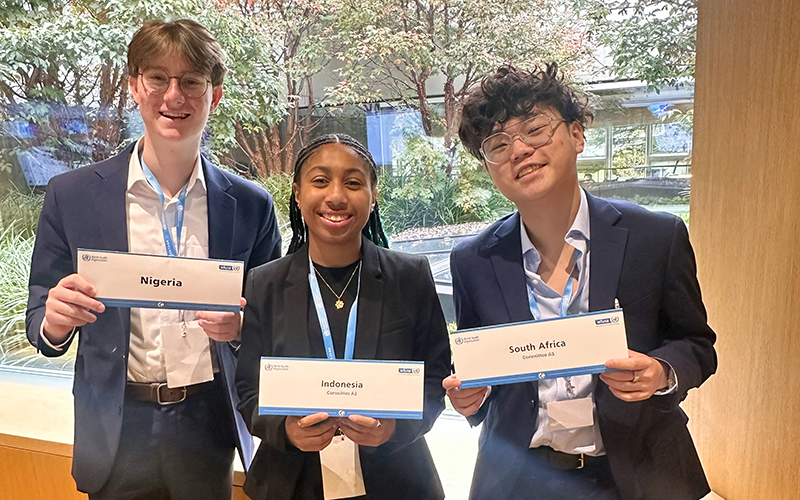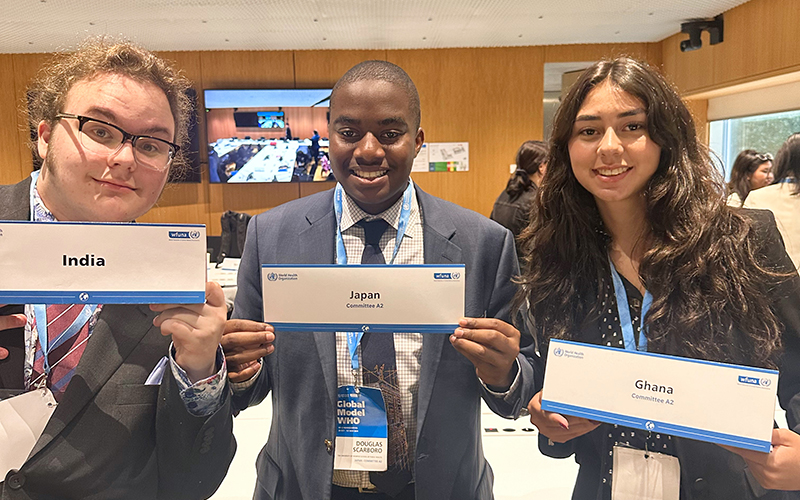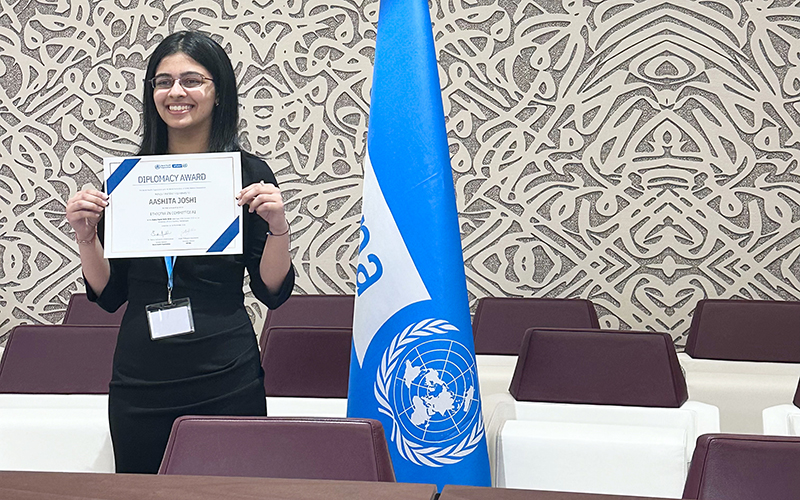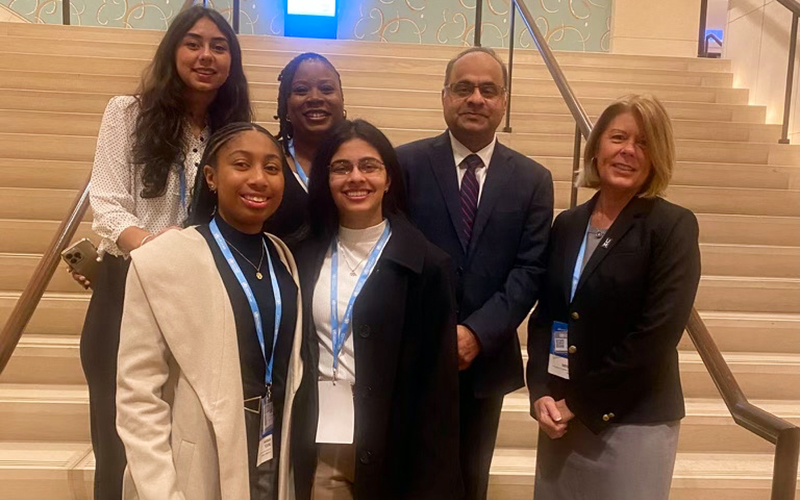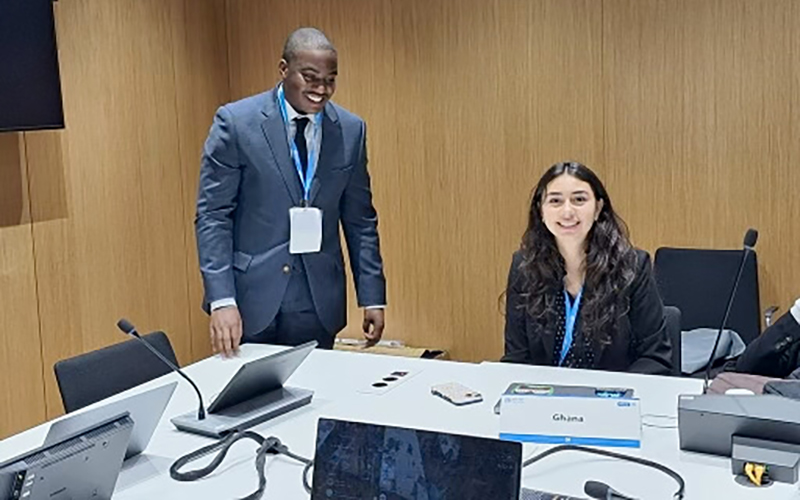Experiential Learning Program - 2024 Fall
 Purpose
Purpose
The purpose of the Experiential Learning Program is to strengthen the Public Health workforce pipeline by preparing high school students to pursue careers in Public Health after post-secondary school graduation.
 Program Goals
Program Goals
PUBH 3120: Environmental and Climate Health
This course provides a comprehensive introduction to the framework, methodologies, and applications of environmental health, as well as the public health impacts and adaptations related to climate change. The course is divided into two sections.
- The first section covers the framework of environmental health, methods for studying the associations between environmental exposure and health outcomes, and regional and local environmental health topics. These topics include air pollution, water quality, food safety, solid waste, radiation, and the development of healthy communities and buildings.
- The second section addresses the adverse health consequences of climate change, specific preventive measures, and policies and actions to mitigate climate change and promote public health. It also covers policies, laws, regulations, and standards related to climate change and environmental hazards. The course equips students with approaches to assess and control climate threats and environmental risks. Students will gain familiarity with these concepts through course materials, discussion sessions, paper reviews, case studies, and hands-on experience.
 Program Objectives
Program Objectives
- Describe the major physical, chemical, and biological agents in common environments.
- Understand and interpret the health effects of exposure to environmental agents.
- Assess the health consequences of environmental exposures using epidemiologic, toxicologic, and exposure assessment methodologies.
- Interpret causes and trends of climate change.
- Explain the major health impacts of climate change.
- Recommend regulatory, technological, and behavioral approaches to prevent and control environmental hazards and climate threats.
 Global Model WHO Conference
Global Model WHO Conference
- Students had the incredible opportunity to attend the first in-person Global Model WHO, jointly organized by the World Health Organization (WHO) and the World Federation of United Nations Associations (WFUNA) at the WHO Headquarters.
- The students traveled to Geneva to collaborate on innovative solutions to pressing global health issues and had the chance to interact with WHO experts.
- In their free time, attendees immersed themselves in the city’s rich history and vibrant culture, exploring major sights like the Palais des Nations, Geneva’s old town, and the Flower Clock. They also discovered hidden gems at the city’s markets and relaxed by the stunning Lake Geneva.
 Student Outputs
Student Outputs
- Completed the PUBH 3120: Environmental and Climate Health course.
- Attended the Global Model WHO Conference, gaining insights into global health challenges, collaborative problem-solving, and networking with WHO experts.
 Program Session Dates/Times
Program Session Dates/Times
| Session | Dates and Times |
| ACT Prep Session Dates |
|
| PUBH 3120 Virtual Session |
|
| WHO Conference Session Dates |
|
 Weekly Homework
Weekly Homework
Weekly assigned homework was a consistent requirement, encompassing tasks from the PUBH dual enrollment course. Students were expected to participate in weekly virtual homework sessions to collaboratively address any questions. These sessions were mandatory to ensure that each student diligently worked towards completing all three dual enrollment courses to earn college credit.
In addition to the virtual sessions, various resources were available to support students, including access to online libraries, study guides, and tutoring services. Instructors were also available to answer any questions, and students were encouraged to contact them via call, text, or email.
 Instructors
Instructors
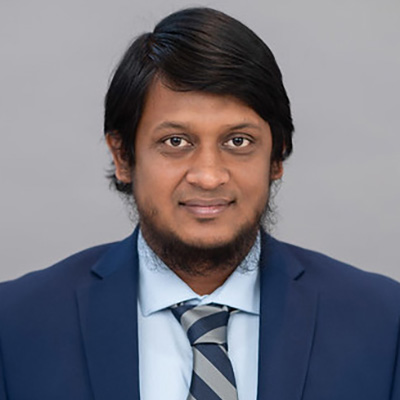
Dr. Abu Mohammed Naser Titu, PhD, MPH, MBBS
Assistant Professor, Division of Epidemiology, Biostatistics, and Environmental Health
Abu Mohammed Naser Titu, PhD, MPH, MBBS, has around ten years of research experience designing and implementing longitudinal epidemiological studies and randomized controlled trials in low-income global settings. For the past few years, Dr. Titu has been conducting research connecting chemical and nutritional qualities of drinking water with cardiometabolic disease outcomes using randomized controlled trials and observational epidemiological studies. Dr. Titu’s Ph.D. work focused on designing and implementing a stepped-wedge cluster-randomized trial to assess the cardiovascular health benefits of water access from managed aquifer recharge systems in seawater intrusion-affected southwest coastal communities of Bangladesh. Dr. Titu is currently developing grant proposals to explore the links of socioecological and environmental risk factors with high cardiometabolic disease burdens among Memphians and the Southwest US population.
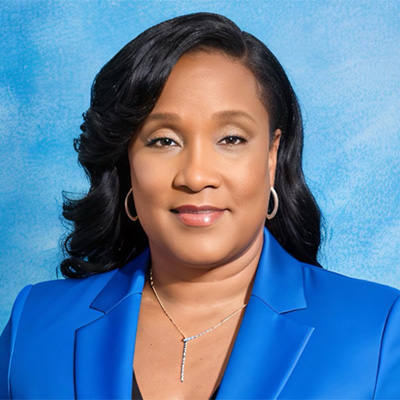
Cicely Odom
Tutor Memphis901
Cicely Odom is a native Memphian and Memphis City School Alum, attending the city’s first charter school. After high school, Cicely continued her studies at LeMoyne-Owen College and University of Memphis. Having a natural love of mathematics and science, Ms. Odom attended Southwest Tennessee Community College and obtained several certifications in Mechanical Engineering and CAD. Southwest was so impressed with her achievements, they brought her aboard as an Academic Advisor and an Upward Bound math instructor. After several years working in secondary education, Cicely saw a great need to assist students prior to reaching the college level and decided to create Tutor Memphis. Tutor Memphis was born out of a need to prepare middle and high school students for standardized test to ensure every possible advantage to reaching their full potential. Ms. Odom is a dedicated and experienced tutor and mentor to many of the top students in the Memphis and surrounding areas. Specializing in making complex concepts understandable and engaging is her superpower. Her patient and personalized approach ensures that each student’s unique learning style is catered to. Ms. Odom recently obtained her Master’s in Curriculum and Instruction with goals to create a customized math curriculum that will meet the needs of underserved students in math and science. In her spare time, Cicely enjoys traveling, spending time with her family and giving back to her community.
 Graduate Assistants
Graduate Assistants

Elizabeth Butler
Graduate Assistant, School of Public Health
Liz graduated from the University of Memphis with a Bachelor’s degree in Music Business and a minor in Criminal justice in 2021. During her undergrad years, she worked as a teaching assistant at Campus School, an after-care group leader with the YMCA of Memphis, and as a freelance photographer/editor. She is currently enrolled at the University of Memphis studying to receive her Master’s in Film & Video Production. Liz has joined the PH-IDEAS team to help create, instruct, and capture the students’ experiences during their time in the experiential learning program. Working with kids has always come naturally to her and she enjoys being able to help them flourish in whatever they choose to accomplish. When she is not at school or working, she enjoys playing and discovering new music, traveling and spending time with her dog, Asera, a very outspoken German Shepherd.
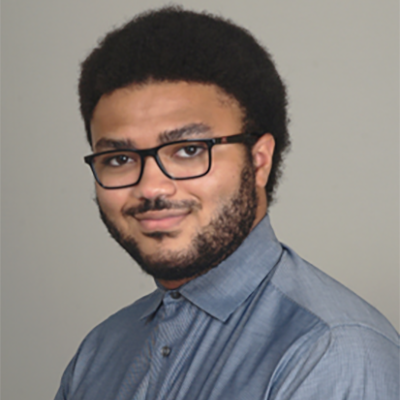
Matthew Horton
Graduate Assistant, School of Public Health
Matthew graduated from Morehouse College with a Bachelor’s degree in Political Science in 2021. During his undergraduate years, he was the Public Relations Manager for the Morehouse College Glee Club, part of the Honors Program, and part of the Judson Lyons Mentorship Initiative. He is currently enrolled for his Master's in Urban Health and has joined the PH-IDEAS team to help teach and guide the students during their time in the experiential learning program.



